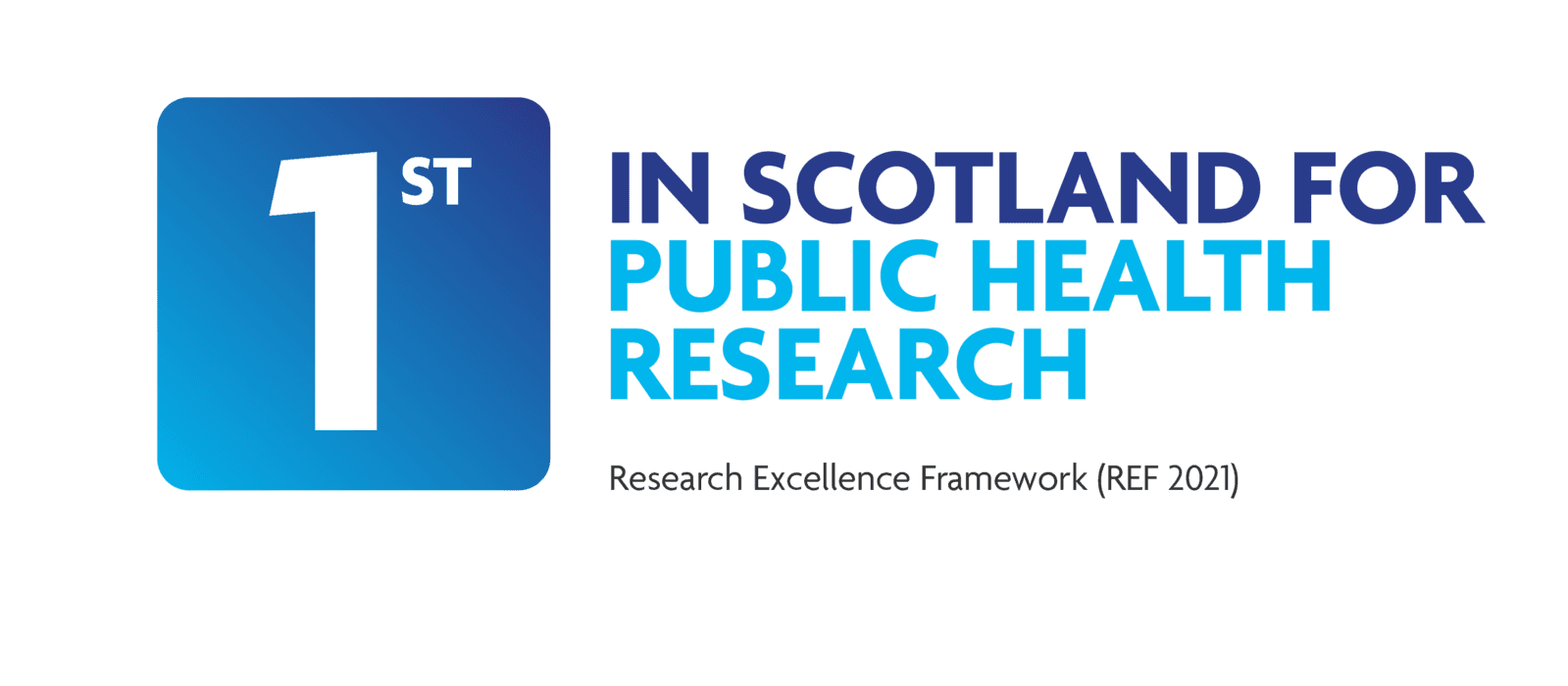Join an online MPH you can study part-time and tailor to your career goals.
Prepare for success in a broad range of public health and academic careers. Gain the skills you need to:
- pursue a career in the public health sector
- influence public health policy
- undertake independent public health research, or
- move on to a PhD.
You’ll cover the key topics required for professional accreditation in public health in the UK and internationally.
You can choose from a substantial range of elective options to tailor your learning to your ambitions.
With 24/7 access to materials, this online MPH is designed to fit around full-time work.
Who can join our online distance-learning MPH?
You do not need to have any particular clinical or specialist knowledge to join our online MPH.
Public health is a very broad area of activity and we welcome student applications from a range of backgrounds and experiences.
Our MPH graduates have included medical students, nurses, political scientists, engineers, policymakers, healthcare managers, physicians, surgeons, social workers, dentists, psychologists, microbiologists, nutritionists, health educationalists, biologists, pharmacologists and biomedical scientists.
You can also study this degree full-time on campus.
Choose an online MPH with an award-winning UK university
You’ll graduate from an ancient UK university, founded in 1495, and ranked 1st in the UK for Medicine by the Guardian University Guide 2024.

Train with healthcare experts
Be part of a university leading the way in nutrition, women’s health, infection control and clinical scanning, transforming lives and medical practice around the world.

Award-winning research
We’re proud winners of the Queen’s Anniversary Prize, the highest national honour for a UK university, for sustained excellence in health research over the last 40 years.
Why we were awarded the Queen’s Anniversary Prize
Real-world impact
Our work has changed clinical practice, policy, legislation and academic method, directly impacting the lives of millions of people.
Our research impact
Outstanding research quality
We’re rated 1st in Scotland for Public Health, Health Services and Primary Care research in the UK’s Research Excellence Framework (REF 2021).
What you’ll study
You can choose to study for a:
- Masters (180 credits)
- or start with one of the short courses that make up this degree (15 credits).
Your tutors will guide you in selecting your optional courses. They’ll help you tailor your MPH to your career goals.
How you’ll study
Online learning
Our distance learning MPH is delivered flexibly, 100% online.
You can learn with us anywhere, with no need for a study visa, and set your study hours to suit you.
Your teaching
Your teaching is delivered through MyAberdeen, our online Virtual Learning Environment (VLE). It holds all the materials, tools and support you’ll need in your studies. Take a look around MyAberdeen.
You can access your learning materials on computer, smartphone and laptop, 24 hours a day. You’ll find a range of resources at your fingertips, including online access to our award-winning Sir Duncan Rice Library.
Your online learning experience will be enriched by interaction with other students from varied clinical, non-clinical, professional and cultural backgrounds from around the world.
Your tutors
You’ll learn from renowned academic researchers and public health practitioners. You’ll train with internationally experienced tutors across disciplines including epidemiology, statistics, qualitative research, public health, health informatics, health economics, nutrition and clinical trials.
Assessments
You’ll be assessed entirely online.
We use a range of online assessment methods throughout your degree, including multiple-choice questions, short-answer tests, numerical exercises, essays, reports, posters, oral presentations and peer review.
Hours for taught courses
To study part-time, we recommend you take a maximum of 30 credits per term. Students typically take one or two 15-credit short courses per term.
15 credits
- Around 150 hours of study and assessment time to complete.
- You’ll study 10 – 15 hours per week per term.
30 credits
- Around 300 hours of study and assessment time to complete.
- You’ll study 20 – 30 hours per week per term.
This is a guide to the time required for a typical student at this level to achieve the learning outcomes. This includes time for independent study, as well as teaching and assessments.
You can largely set your own study hours each week to cover the materials. MyAberdeen is available 24/7, so you can log in and study when it suits you.
Activities at fixed times
There may be some activities scheduled at a fixed time, such as online meetings with your tutor or assessments with deadlines. But otherwise, you can access and work through each course at your convenience.
Hours for 60-credit projects
A 60-credit project is around 600 hours of study time.
This is around one term of full-time study.
You can dedicate a full term to your project and work on it full-time. Or you can complete it part-time, spreading the hours you dedicate to it over two terms.
Hours for 30-credit projects and case studies
A 30-credit project or case study is around 300 hours of study time. That’s around 20 – 30 hours per week per term.
You will dedicate a full term to your project or case study.
When you study with us, you can expect a first-class support structure so that you’re never alone in your studies.
But learning online does mean you have to motivate yourself and manage your own time.
Your most important commitment will be time – the time to work through, reflect on and understand your teaching materials.
Before you start a course that involves a high degree of independent study, we recommend looking at the time you will be able to devote to your studies each week:
- Be realistic
- Create a weekly schedule as a guide
If you have any questions about studying online, get in touch with our friendly team. We’re here to help.
Our first-class support structure will ensure that you aren’t alone in your studies. You’ll have contact with your tutors via MyAberdeen and email. You can use social media and discussion boards to chat with your fellow students too.
We provide a wide range of services to support you in your studies and beyond:
- Careers and Employability Service – including one-to-one advice sessions
- Disability support
- IT support
- Library support
- Student Support Service – help with finances, stress, wellbeing and non-academic issues
- Student Learning Service – study support, with advice sessions available via phone or Skype
- Aberdeen University Students’ Association (AUSA) – run by students for students
- Toolkit – clever apps and free training that can make your study life easier
Wherever you are in the world, you’ll feel part of our very special Aberdeen learning community.
We’re a member of the Access scheme run by the Society of College, National and University Libraries (SCONUL).
Access study spaces, books and journals in your area
The SCONUL Access scheme allows you, as a University of Aberdeen student, to access books and resources at university libraries across the UK and Ireland, or visit them for a quiet place to study.
You’ll be able to use study spaces, books and journals at over 150 university libraries which belong to the scheme.
Your support team
Our friendly team are here to answer any queries you have before, during and after your studies.

Dr Janet Kyle
Janet is the degree coordinator. She’ll be on hand to answer any questions about degree content before you start and to help you throughout your studies.

Clare McHattie
Clare is part of the School’s postgraduate teaching support team. She’ll be there throughout your studies to answer any of your non-academic queries.

Get in touch
The online education team is here to answer any questions you have right now about this qualification, or about studying online.
Ask us a questionWhere this will take you
Your MPH qualification
You’ll earn exactly the same MPH qualification online as you would on campus.
You’ll graduate with a respected MPH from an ancient UK university.
Your MPH qualification will be recognised by employers and educational institutions around the world.
Careers
You’ll graduate with the broad public health knowledge and essential research skills you need for both academic and workplace practitioner environments. You will be ready to:
Pursue a career in the public health sector
- in world-ranking academic research institutions
- working on projects commissioned by health authorities such as the WHO, Ministries of Health and NGOs.
Influence public health policy
- through your independent research, with publication in peer-reviewed journals
- translating research evidence into practice in professional and health authority settings.
Become an independent researcher
- identifying research priorities and goals set by global and national health authorities.
Move on to a PhD
- The MPH is a common pathway to health-related PhDs.
- You’ll have the advanced skills in quantitative and qualitative research methods, critical thinking and scientific writing you need to succeed.

Lifelong career support
Our career support doesn’t stop when you graduate.
You have access to our free careers service while you study, and beyond.
- 1:1 appointments
- CV checks
- Interview prep
- Job opportunities
Fees and funding
The fee quoted above is based on you starting your studies with us in the 2024/25 academic year.
We have confirmed that our fees will rise by 5% for the 2025/26 academic year. Our indicative cost includes a 5% fee rise each year.
Pay as you go
This is a pay-as-you-go degree.
You do not have to pay the full tuition fee upfront.
You can spread the cost and pay as you go, term by term.
How it works
- You decide how many credits to study for each term.
- At the start of term, you pay only for the credits you’re taking that term.
- This gives you control over your costs and workload for each term of your degree.

Your personalised cost breakdown
Use the degree scheduler to plan your studies and see your cost breakdown, term by term.
Learning resources
Access to all the books and resources you need are included in your tuition fee. They’ll be made available to you online and you do not have to buy your own copies.
Printing
You may wish to set aside a small budget for printing, depending on how you like to work.
There are several ways you may be able to get help funding your studies:
- Employer sponsorship – we accept full and partial fee payments from sponsors
- Student loans
- Scholarships – search our funding database for scholarships
Find out more about funding options.
Student card
All our students are entitled to a University of Aberdeen student card. This gives you access to a range of student discounts around the city and online.
20% Alumni discount
You’re entitled to 20% off our postgraduate taught degrees and short courses if you have a degree from the University of Aberdeen. View Alumni discount details.
10% NHS discount
NHS staff receive 10% off online postgraduate degrees and short courses offered by our School of Medicine, Medical Sciences and Nutrition; our School of Psychology; and our ILM leadership courses. View NHS discount details.
How discounts work
Discounts are applied during your application process. Only one discount can be used per application. If you are eligible for more than one discount, we will apply the largest discount for you.
More benefits to choosing us for your online MPH

Leaders in health teaching
We’ve been training health professionals for decades and delivering online teaching for over 20 years.

NHS and alumni discounts
NHS staff get 10% off this online degree. University of Aberdeen alumni get 20% off.

Fits around full-time work
This degree fits around full-time work, with flexible hours and 24/7 study access.
Entry requirements
MPH
For entry, you will usually have:
- a health-related honours degree (a 2:2 or at least 60%)
- or be able to demonstrate evidence of equivalent experience in healthcare practice or research.
You can also apply if you have:
- an honours degree (2:2 or at least 60%) in science, social science or a humanities subject and you’re interested in a public health-related career.
We welcome MPH Online applications from students with both traditional and non-traditional health-related backgrounds.
Short course route to online MPH
If you do not meet these entry requirements, you may be able to use our online short courses as a route into this degree.
Find out about our short course route to entryYou apply through our online Applicant Portal. It allows you to upload relevant qualifications and documents.
There is no application fee for our online degrees.
What you need to apply for this degree
- Degree transcript
- Personal statement
- Degree certificate
- CV / Resume
- References x2
References
You will need two reference letters. One should be from your university discussing your academic ability. If you have been out of education for a long time, you can use your current or most recent employers or other professional individuals.
Apply now
Start with our step-by-step guide. It explains degree transcripts, what to write in your personal statement and how to use our Applicant Portal.
You can apply to start in either September or January.
Apply as early as you can. This is so we have time to review your application and get a decision to you. We also want to ensure you have time to enrol before teaching starts.
September 2024 intake
For our September 2024 intake, the application deadline is 8 September 2024.
You will need to accept your offer and provide any outstanding documents to meet the conditions of your offer by 15 September 2024.
Teaching starts on 23 September 2024.
January 2025 intake
Teaching starts on 27 January 2025.
Application deadlines will be announced in due course.
Entry requirements
We welcome students from all over the world.
See the minimum entry requirements above. If you do not have qualifications from the UK, check equivalent qualifications from your country.
Visa requirements
You do not need a student visa to study online with us.
English language requirements
Teaching is delivered in English.
If English is not your first language, use our English requirements checklist to see if you need to provide evidence of your English language skills when you apply.
English language tests and scores
If you do need to provide English language test scores, these are the tests and minimum scores we accept.
These are our Postgraduate Higher requirements.
IELTS Academic, IELTS UKVI Academic, and IELTS Online (not IELTS Indicator or IELTS General Training)
- 6.5 overall
- 5.5 for listening and speaking
- 6.0 for reading and writing
TOEFL iBT and TOEFL iBT Home Edition
- 90 overall
- 17 for listening
- 21 for reading
- 20 for speaking
- 21 for writing
- TOEFL DI code is 0818
Cambridge English: B2 First, C1 Advanced, or C2 Proficiency
- 176 overall
- 162 for listening and speaking
- 169 for reading and writing
LanguageCert Academic/LanguageCert Academic SELT
- 70 overall
- 60 for listening and speaking
- 65 for reading and writing
LanguageCert International ESOL B2 Communicator (Written and Spoken) – Online / In-centre
- Overall High Pass
- 33 for listening, reading and speaking
- 38 for writing
Oxford ELLT Digital – English Language Level Test Online
- 7.0 overall
- 5.0 for listening and speaking
- 6.0 for reading and writing
PTE Academic (online test not accepted)
- 62 overall
- 59 for listening, reading, speaking and writing
Duolingo – tests taken from 1 July 2024 onward
- 120 overall
- 95 for listening and speaking
- 105 for reading and writing
University of Aberdeen English Pre-sessional Programme (PSE)
- Pass
- Valid for one year. Refresher can be offered if out of date
Pre-sessional academic English preparation programmes undertaken at other UK universities
- Pass at an equivalent of 6.5 (C1)
- B2 in all four skills
- Certification must be within one year prior to the start of your course
For more information about language qualifications see our English Language Requirements page.
You will need access to:
A computer (PC, laptop or Mac) operating on either:
- Windows 10 or later
- macOS 10.15 (Catalina) or later.
Most teaching materials are smartphone- and tablet-friendly. But we recommend a proper laptop or desktop for completing assignments comfortably.
Reliable internet access
We recommend:
- a wired connection
- a minimum download speed of 2 Mbps so you can take part fully in live sessions.
Speakers or headphones
- We recommend a headset with built-in microphone and earphones if you’re likely to study in an environment with background noise.
- A webcam is optional, but you may like to use one for some interactive sessions.
Software
We’ll give you access to Office365 applications. This means you can use online versions of Microsoft Word, Excel, and PowerPoint and install these programs on up to five personal devices.
If your course requires specialist software, we’ll provide you with access to this and a licence that lasts throughout your studies.
See our detailed IT requirements for more information.
Try our degree scheduler

Choose your courses
See all the courses that are part of this degree and choose what you want to study.

Manage your study schedule
Control the pace and cost of your degree. Decide how much you want to study each term.

Save to your wishlist
Save your schedule to your wishlist so you can view and edit anytime.
Master of Public Health
180 credits
£16,000
This indicative cost is based on 180 credits of study over two years, starting in September 2024.
Apply for this programme
- Start month
- September or January
- INDICATIVE COST
- £16,000
This indicative cost is based on 180 credits of study over two years, starting in September 2024.
Apply via our Applicant Portal









